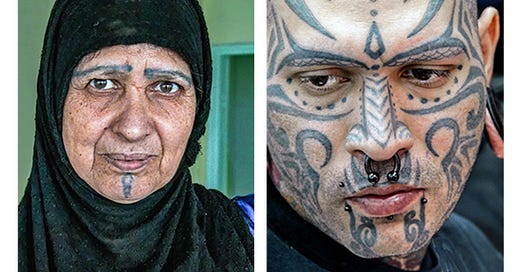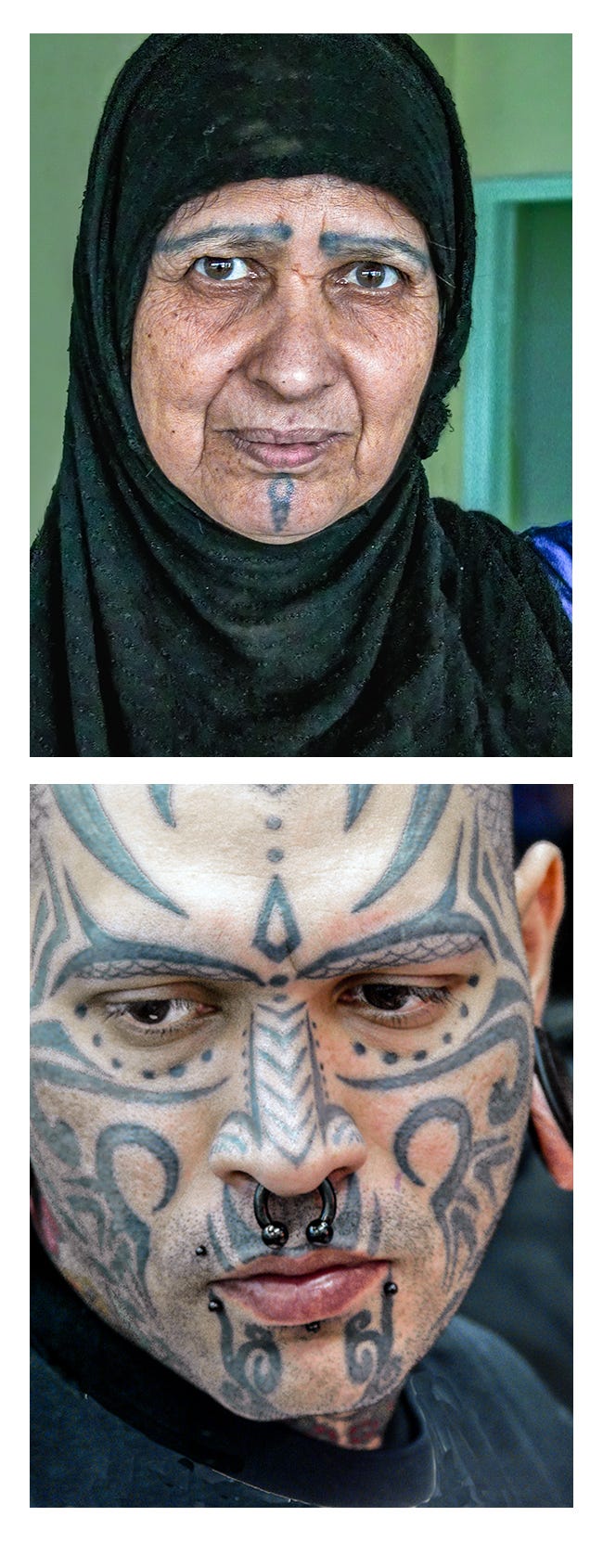Facial tattoos—traditional among Amazigh tribes of Algeria, Kurdish communities in Mesopotamia, and the Bedouins of the Arabian Peninsula—carry distinct and varied meanings. This southern Iraqi’s designs are likely a mark of her tribal identity.
And so, too, in a way, are the tattoos on the man below her. As I remember, he was born in Brazil and tattooed there. I photographed him in a shop on 6th Avenue in New York City while he was inking clients. That storefront was later replaced by a chain drugstore and now sits empty, its doorway a gathering spot for unhoused men.
For most people today, tattoos are a personal, and in a more ad hoc way, a kind of “tribal” identity of choice. I am awed and bewildered by the confidence that such an immutable decision (to say nothing of skin integrity) will hold up after decades of living.
As for that immutabilty, I recently photographed inside a prison and, as a condition of access, agreed to protect inmates’ privacy by blurring faces and deleting identifying features, including tattoos. Photoshop’s AI tools made it a quick and painless task. How many people, I wonder, live with regretted tattoos and wish erasing them were that easy in real life.







I accompanied a woman to a cosmetic surgeon to have her tattoos removed. It is an expensive and painful process apparently, but she had changed and the tattoos wouldn't allow her to escape her past decisions and immaturity. She wanted them removed..
One woman in my sports club had her eyes outlined with tattoos. Now that she is aging, it accents her dropping eyes. i wonder if she regrets doing it. I'm afraid to ask.
That Brazilian man has a beautiful face, with or without tattoos. What woman wouldn't want to have that perfectly shaped mouth. No need for lipstick.